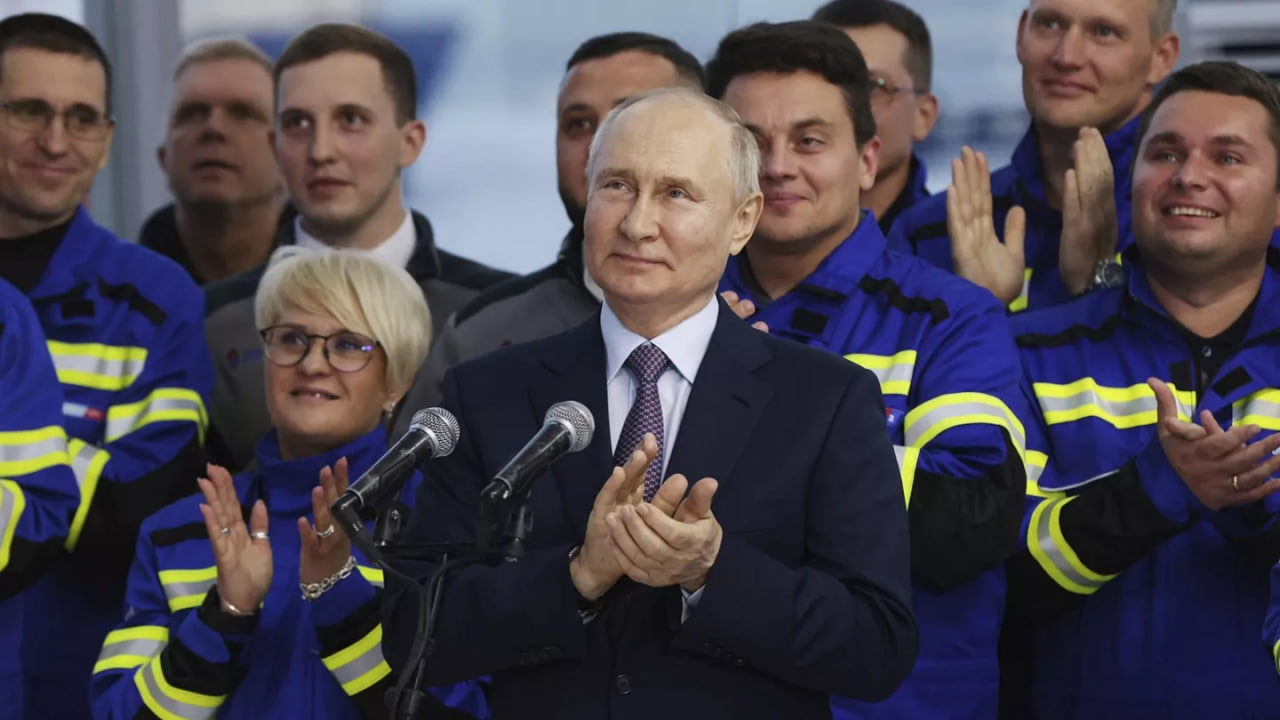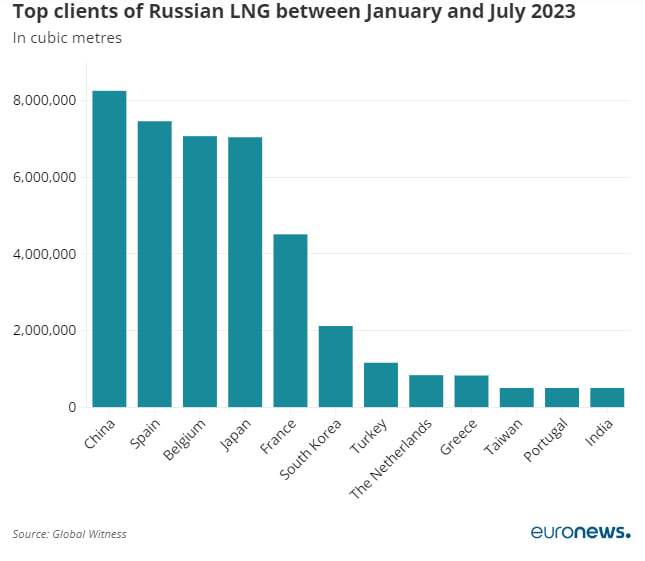According to recent findings by environmental organization Global Witness, the European Union acquired 21.6 mn cubic meters of Russian LNG from January to July this year, slightly exceeding the 21.3 mn cubic meters imported during the same period in 2022.

According to Euronews, comparing the 2023 figure with the same timeframe in 2021, before the Russian invasion of Ukraine, reveals a 39.5% increase. This is problematic for the bloc, which condemned the war as an illegal and cruel attempt by Russia to control Ukraine.
The situation worsens for the European Union as three EU members are among the top five recipients of Russian LNG in the first seven months of the year. China leads the list with a purchase volume of 8.7 mn cubic meters, followed by Spain (7.5 mn cubic meters), Belgium (7.1 mn cubic meters), Japan (7 mn cubic meters), and France (4.5 million cubic meters).
Coastal Spain, Belgium, and France are receiving more vessels transporting LNG. In the ports of these countries, the chilled liquid returns to a gaseous state and goes to power plants.
Global Witness also identified the Netherlands, Greece, Portugal, Finland, Italy, and Sweden as current consumers of Russian LNG, using shipping data from analytical firm Kpler.
Overall, estimates indicate the EU procured 52% of the total Russian LNG exported from January to July 2023. This surpasses 49% in 2022 and 39% in 2021.

The largest buyers of Russian LNG from January to July 2023.
This year's purchases amounted to 5.29 bn euros, raising questions about efforts to weaken the Kremlin's "war chest," primarily fueled by fossil fuel sales abroad.
While the EU prohibited Russian coal and pipeline oil imports since the conflict began, it curiously excluded Russian gas. Although pipeline gas flows were significantly cut due to national initiatives and countermeasures by President Putin, tankers carrying Russian LNG seem to be welcomed in European ports.
"Purchasing Russian gas has the same consequences as buying Russian oil. Both fund the war in Ukraine, and every euro spent on this means more bloodshed," stated Jonathan Noronha-Hant, an expert from Global Witness. "While European countries condemn the war, they're putting money in Putin's pocket."
Eurostat data shows a similar picture: in Q1 2023, Russia ranked second in LNG supply to the EU, trailing only the United States and surpassing Qatar, Algeria, Norway, and Nigeria.
Market data analyzed by Brussels-based economic analysis center Bruegel indicates minimal changes in Russian liquefied natural gas flows, despite numerous sanctions and increasing evidence of potential war crimes in Ukraine. In March 2022, the first full month of the invasion, the EU purchased 1.99 mn cubic meters of Russian LNG, while in July 2023, this figure dropped to 1.59 mn cubic meters.
Follow Daryo's official Instagram and Threads pages to keep up to date on world news.
Comments (0)